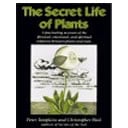
In the Mind of Plants
Plants are a vital source of life, providing sustenance and oxygen to the human and animal inhabitants of the world. But is plant life closer to sentient life than expected? This documentary from Jacques Mitsch outlines the ways in which intelligence is defined - by recognizing one's environment and interacting with it; having a memory; being able to communicate and interact socially; and having a brain to coordinate everything.
This film investigates the notion that plants are intelligent, evolved biological forms through interviews with researchers across the globe that are exploring the boundaries between animal and plant. Researchers in the Savannah desert find that populations of Kudu are mysteriously dying off, and make a surprising discovery – Acacia trees have developed a survival technique in response to dense herds of Kudu overgrazing.
When the trees sense that they are being overtaxed they defensively release a toxic gas, eliminating the threat to their population. In examining the predatory nature of plants such as the Venus Fly Trap, the narrator explains that plants have learned to adapt to their environments. In the case of the Venus Fly Traps and other carnivorous flora, the plants compensate for nutritional deficiencies by eating insects, further demonstrating that they are capable of reacting to their environment.
Scientists at Bonn University in Germany focus their studies on the exploration of plants' ability to recognize and respond to environmental stimuli. Using peas and beans as an example for their use of tendrils to seek out air and light, the researchers demonstrate their point by stimulating pea plants with sticks, causing the tendrils to react. They suggest that pea seedlings exhibit the capacity for memory and perception in their ability to grow upwards regardless of how they are positioned, i.e. a plant on its side reorients itself to continue vertical growth.
Japanese researchers investigate the way plants function at the molecular level, asking how plants sleep, if they need sleep and what happens if they don't sleep? By recreating day and night cycles in artificial conditions, they manipulate their botanical test subjects in the hopes of proving that sleep and rest are not purely animal behaviors.
A small but growing area of research, the study of plant intelligence is considered somewhat controversial and met with skepticism by the larger scientific community, but is no less important to our understanding of intelligent life be it human, animal or botanical. In the Mind of Plants provides valuable insight into this developing area of investigation and inspires viewers to consider our relationship with the botanical cohabitants of the world.




I think that some plants have modified themselves to evolve as todays animals (including man)
Regarding intelligence in plants and in nature in general, I do believe that life itself is intelligent. Nowadays we call that kind of intelligence an application, or simply just an app. Welcome to the selfsustaining simulation ;-)
@Robin K
Darwin did not regret anything. That is a myth made by fundamental christians. On his deathbed he thanked his wife for being a good spouse. That's it.
We know our brains control most of our internal biological functions. They regulate breathing, control our central nervous system, and so on. Intelligence, however, is a bit more difficult to explain, account for, or pinpoint. The assumption is that the brain is the seat of intelligence; but the tests that seem to "prove" that assumption primarily prove only that the central nervous system carries electrical impulses to all parts of the body. In reality, the brain may have nothing more to do with intelligence than simply as a regulator of electrical conduits.
So there's still hope for the lowly plants - even without that all important gray matter.
I love all documentaries, we often overlooked some of the most powerful Concepts in life because they were originally presented to us in a manner that fails to stimulate and Intrigue the human psyche. documentary films and series brought to us today reach inquisitive minds, captivate and pull us in regardless of age.
from David Attenborough to Sigourney Weaver and since the Advent of HD quality in the mainstream, our documentaries and educational television presentseven the migration of fungal spores in a manner that keeps us on the edge of our seats.
unfortunately all too often the narrator whose image is never brought to us on screentends to be a little backstage by the video and audio.
I enjoyed "in the mind of plants". I think the narrator is key how much information is retainedand are often overlooked in consideration save one brief flash during the credits.
the voice without a face deserves a lot of credit sometimes I hear my kids say " oh I like her or him" not realizing you're getting sit through some quantum physics "boring junk".
Does anyone know who the music was composed by? I know Gilles Carles is credited for the original music in the end credits, but I can't seem to find any information on that online.
For the record; In the end, Darwin admitted that he didn't believe in his own theory about evolution.
I see most people forget to mention that.
Very interesting documentary.
It leaves me with a number of questions I wish I could ask some of these botanists.
What about giant plant colonies, such a mushrooms or aspen trees. Has anyone studied whether they communicate and how? Some fungus colonies grow to thousands of acres. Or Pando, the giant aspen tree organism in Utah that covers hundreds of acres.
What about serotonin in plants and also in the human brain? How do their functions differ?
I live in a giant forest made up of conifers and aspens, and it seems they must have interconnected root systems because the roots have no choice but to touch each other and wrap around each other.
No one understands consciousness. No one knows where it comes from, although most people assume from the brain. But we have no actual evidence of that, despite all our modern tools.
For all we know, consciousness may exist as a separate force in the universe, just like space, time, energy, and matter. The physicist Amit Goswami proposed this years ago in a book called the Self Aware Universe. What if consciousness shaped matter in order to make it into a better vessel in which for consciousness to reside?
In the 1980's the Rutgers University Agricultural Engineering Department grew tomatoes in greenhouses. To entertain the graduate students they also piped in music.
Peculiarly the tomatoes grew larger, faster and gave higher yields to Mozart than to contemporary Rock. Some thought this resulted from wavelengths or electrical pulses, but no work was done to verify cause and effect.
wow does this doc spend a LONG time getting to the point.
after five minutes it was no closer to explaining what it was about and i started skipping ahead.
for a documentary on plants, it seems to spend the first quarter of an hour talking exclusively about deer (bonobo's or whatever)
this documentary screams Woo at me.
the answer to do plants have intelligence is no. Unless you can point me to a plants brain, or it's method for processing information then no, they don't...they do what they do because of a little thing called evolution.
This doc explains nothing.
It certainly didn't leave me questioning the existence of intelligence in plants...the intelligence of some humans certainly, but not plants.
Fascinating documentary for anyone that likes plants. I earn my living growing and selling them and still learned something new like that Desmodium gyrans moves when music is played nearby.
Some people actually eat these sentient beings!
This documentary reminds me that I need to get some plants for my house!